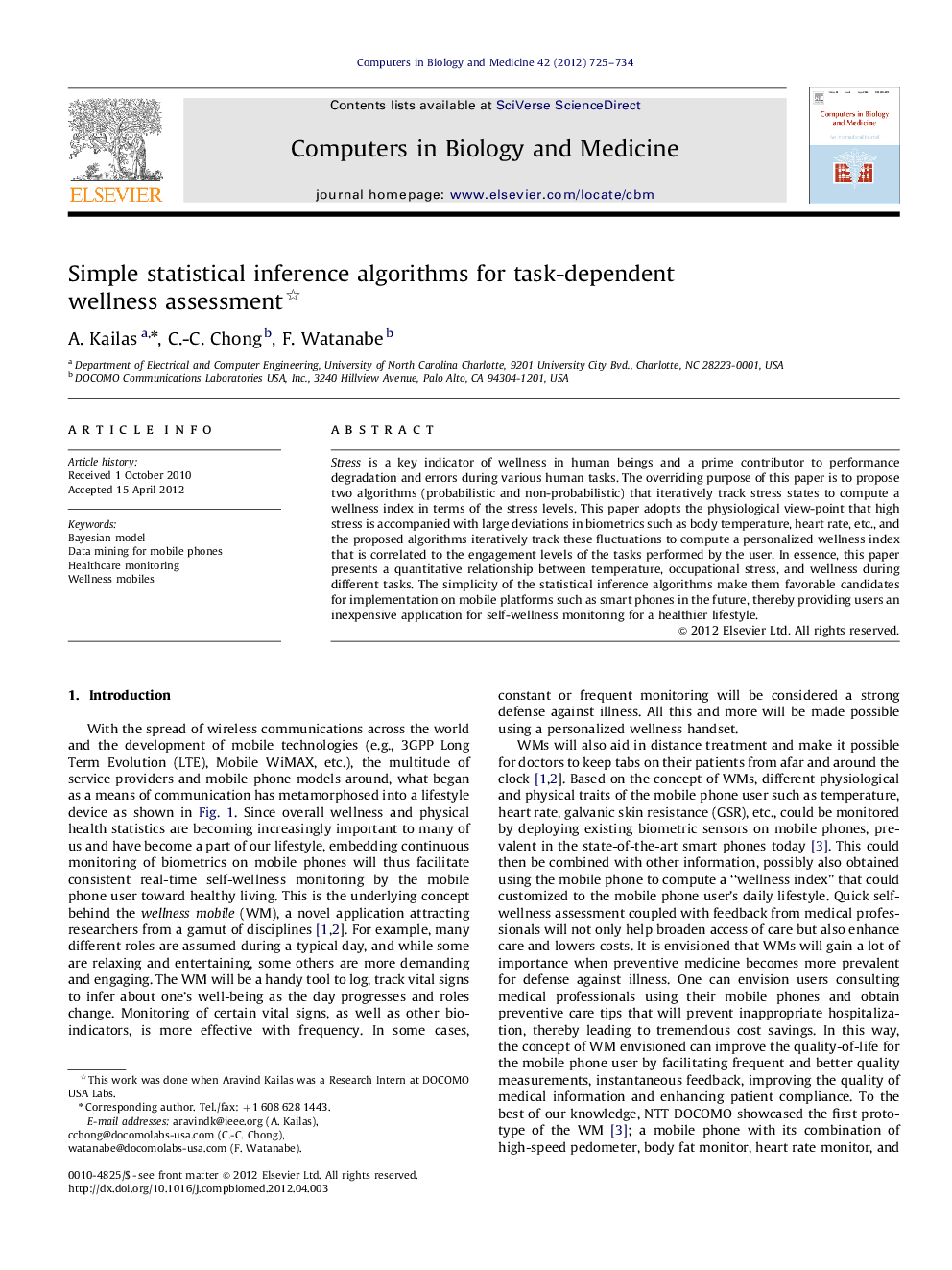| Article ID | Journal | Published Year | Pages | File Type |
|---|---|---|---|---|
| 505300 | Computers in Biology and Medicine | 2012 | 10 Pages |
Stress is a key indicator of wellness in human beings and a prime contributor to performance degradation and errors during various human tasks. The overriding purpose of this paper is to propose two algorithms (probabilistic and non-probabilistic) that iteratively track stress states to compute a wellness index in terms of the stress levels. This paper adopts the physiological view-point that high stress is accompanied with large deviations in biometrics such as body temperature, heart rate, etc., and the proposed algorithms iteratively track these fluctuations to compute a personalized wellness index that is correlated to the engagement levels of the tasks performed by the user. In essence, this paper presents a quantitative relationship between temperature, occupational stress, and wellness during different tasks. The simplicity of the statistical inference algorithms make them favorable candidates for implementation on mobile platforms such as smart phones in the future, thereby providing users an inexpensive application for self-wellness monitoring for a healthier lifestyle.
